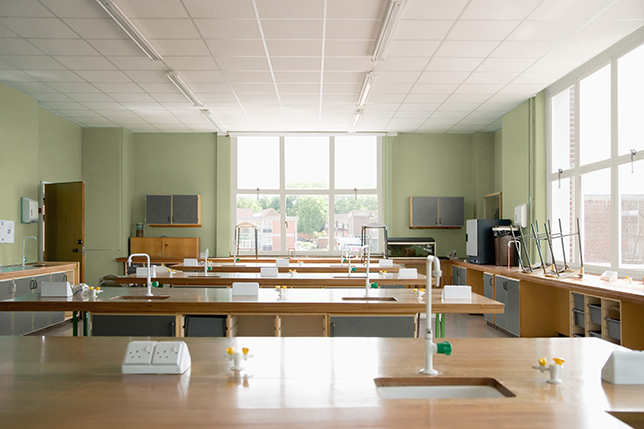
Color selection for classrooms must rely on evidence-based design and principles to enhance engagement and, more importantly, support both teachers and the students in the desired outcomes for their time within classrooms and learning spaces.
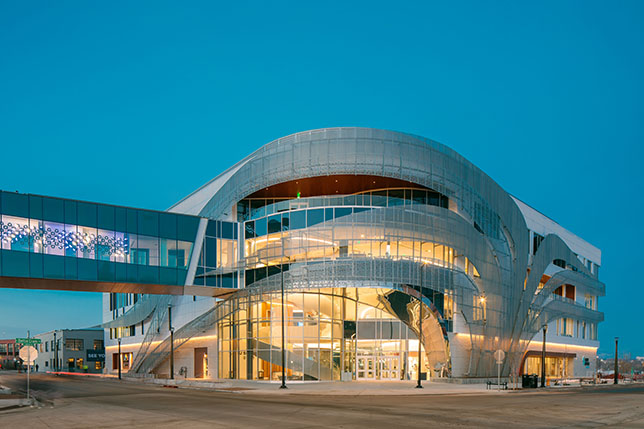
In hopes of revitalizing the 200-year-old Colorado National Western Center, the Hydro building is a transformative, civic-centered, living laboratory that connects the urban core of Denver to the rural communities across the region through water literacy and conservation. As one of three signature buildings on the Colorado State University (CSU) Spur campus, Hydro reflects the water-focused research, education, and policy-making inside.
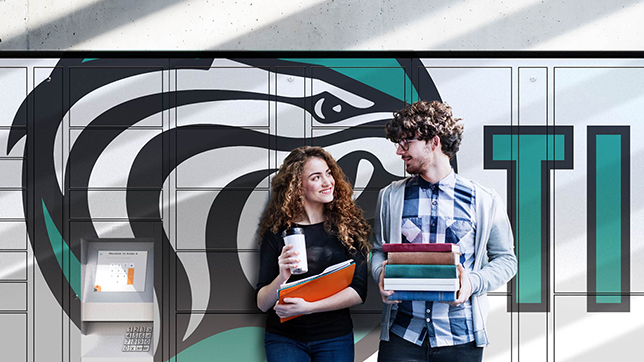
The vast majority of university mail service centers were constructed prior to the advent of the digital age. Now, in the days of social media and same-day shipping, receiving or sending a letter in the mail is an uncommon occurrence, while online shopping and package delivery have seen a meteoric rise.

Federal and state governments announce available funds to public school districts throughout the year. These are usually tens or hundreds of millions of dollars meant to help schools with infrastructure upgrades or replacements. There’s a catch to all these grants, though: Schools must apply for the funding through an oftentimes complicated and detailed application process with a strict deadline.
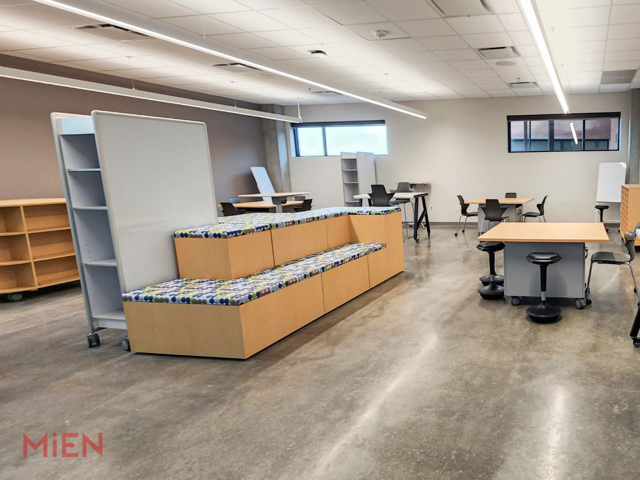
After several years of planning, design, and construction, we proudly opened the doors to Paluxy Hall at Northeast Lakeview College in August 2022. Situated on our 267-acre campus, the 80,000-square-foot facility provides students with the resources and support that they need to achieve success in science, engineering, technology, and math (STEM) fields.
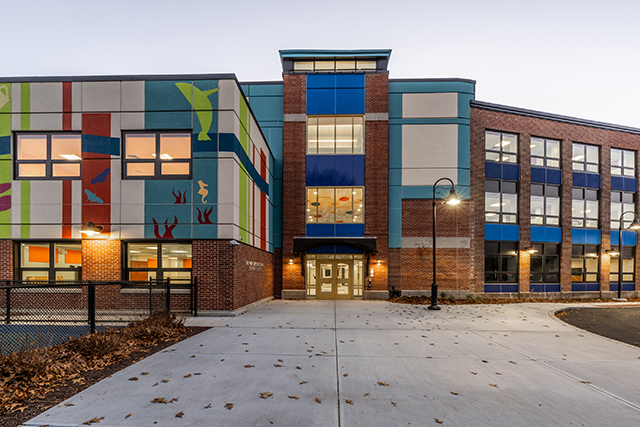
Reuse of existing buildings is nothing new in Massachusetts, where three-hundred-year-old structures aren’t out of the ordinary. The renovation of older buildings to serve fresh purposes can pose a range of opportunities and challenges. Massachusetts-based construction firm Colantonio recently renovated a century-old building in Quincy, Mass., to serve as a children's special education facility.

Spaces4Learning recently convened a panel of ed tech experts to discuss how technology and design can help create a better learning experience for all students — and how institutions can plan, design, and assess their own vision for the classroom of the future.
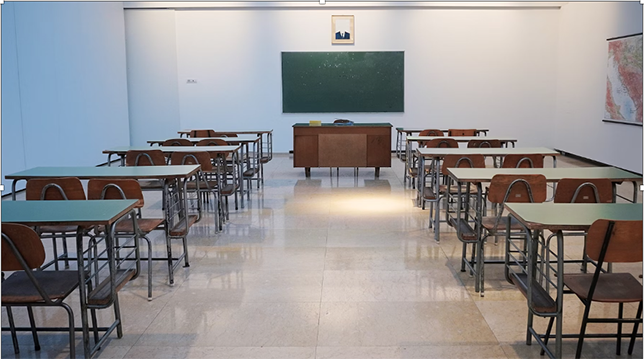
Congress appropriated an extremely large amount of funding for school projects, and the final round allocations totaled $122 billion. That’s a huge amount – about $380 per person in the U.S. This revenue came through the Elementary and Secondary School Emergency Relief program and was delivered with a mandated deadline: It must be obligated by Sept. 30, 2024.
McMaster University is using technology to better control and manage its legacy thermal systems and create smarter buildings. Carmichael Engineering Ltd., a Canadian systems integrator, worked closely with ABB Canada’s leading experts and its highly adaptable smart building platform, ABB Cylon®, to improve energy efficiency, enhance user adaptability, and leverage innovative technologies in locations across campus.
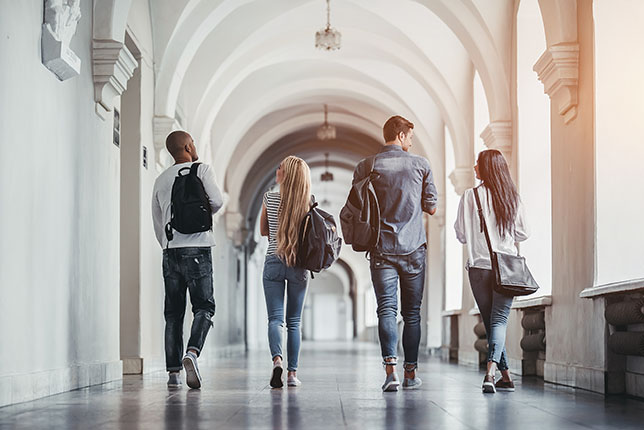
We asked our readership to send us their predictions for 2024 trends in educational facilities. Across K–12 and higher-education campuses both, we asked for opinions on topics like technology, flexible learning spaces, campus safety & security, disaster response, and more. This article is the third in a three-part series compiling responses from educational professionals and vendors.

We asked our readership to send us their predictions for 2024 trends in educational facilities. Across K–12 and higher-education campuses both, we asked for opinions on topics like technology, flexible learning spaces, campus safety & security, disaster response, and more. This article is the second in a three-part series compiling responses from educational professionals and vendors.

We asked our readership to send us their predictions for 2024 trends in educational facilities. Across K–12 and higher-education campuses both, we asked for opinions on topics like technology, flexible learning spaces, campus safety & security, disaster response, and more. This article is the first in a three-part series compiling responses from educational professionals and vendors.
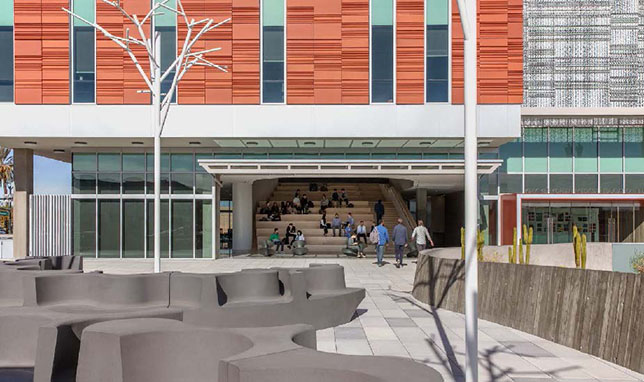
The Kirk Kerkorian Medical Education Building (MEB) is the flagship facility for the Kirk Kerkorian School of Medicine at UNLV and serves as an anchor for future expansion within the city s burgeoning medical district. With a diverse program that supports learning and collaboration at many scales, the new facility—the med school’s first permanent structure—allows the school to double its graduating class from 60 to 120 students and help address a shortage of healthcare professionals in the state.
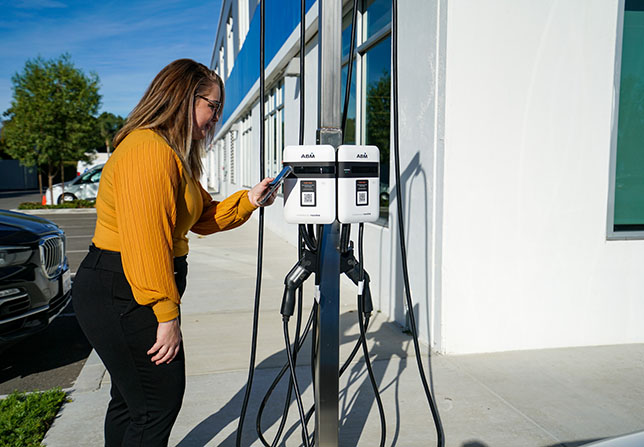
The Electric Vehicle (EV) revolution is upon us. A recent analysis by EY found that EV sales will outpace all other engines three years sooner than expected. This demand will be further driven by the Inflation Reduction Act with new incentives to encourage domestic EV production and ownership. Campuses need to be ready with convenient access to fast and reliable charging stations to support students, staff, guests, and electrified fleets.
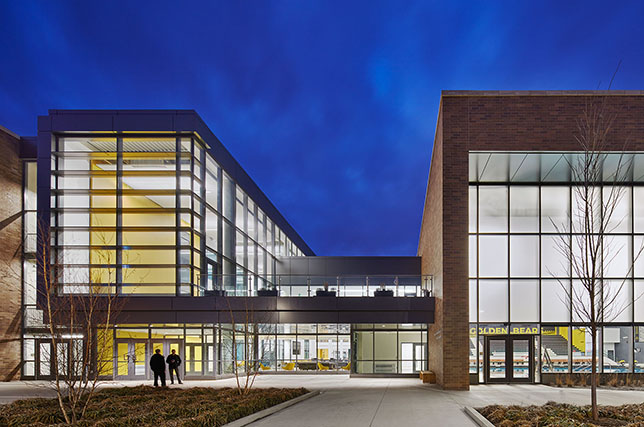
“Your voice matters” defined the Upper Arlington, Ohio, High School master planning and design process, and it was the catalyst behind the project to improve aging facilities in this high-performing district.
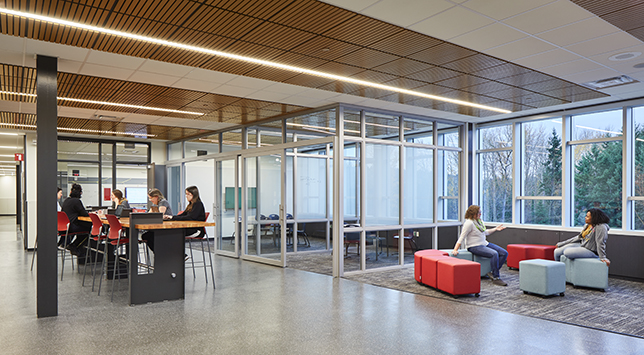
While these design goals sought to balance the various needs of a school, they also supported social-emotional learning (SEL), which focuses on fostering social and emotional skills within school curricula. SEL can take many forms, but it generally adheres to five central competencies: self-awareness, self-management, social awareness, relationship skills and responsible decision-making.
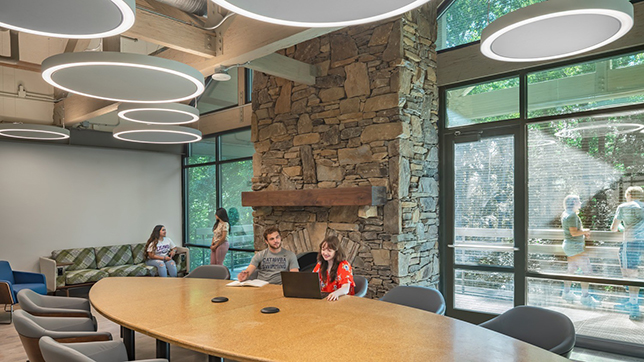
At Catawba College, home of the first certified net-zero campus in the Southeast and only the seventh in the United States, the Center for the Environment (CENV) features the Environmental Studies Department’s hands-on research laboratory. Built more than 25 years ago, the building needed major systems and aesthetics revitalization.
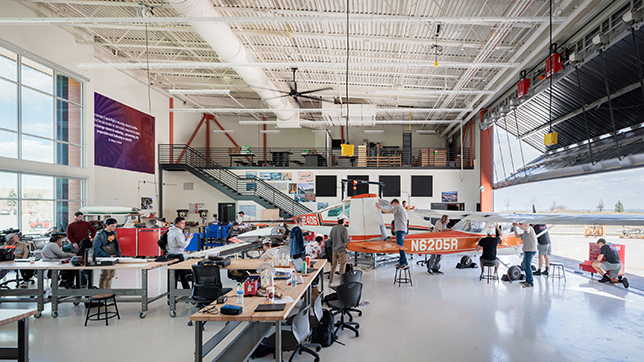
Creating successful spaces to spark curiosity, collaboration and confidence for students starts with several key programming and design considerations.
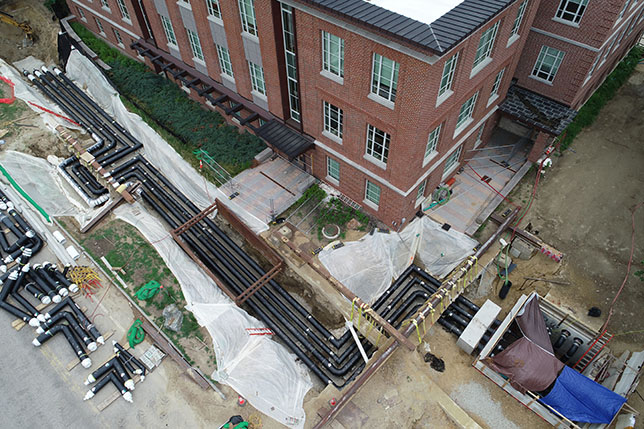
This strategy for campus renewal and modernization was top of mind for the University of New Hampshire (UNH) as it embarked on one of its most significant infrastructure improvements in recent history––relocating a substantial portion of its utility distribution network connected to the Combined Heat & Power Plant (CHP).
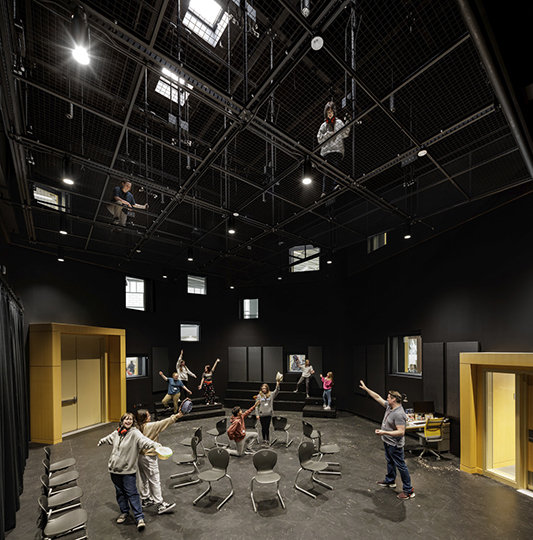
Getting a student out from behind a desk; having them work with others in a self-directed way; allowing them to explore and express themselves and make things; having them learn skills that can be applied in life and in possible career paths—those are goals behind today’s push to change how students learn, to get them to want to come to school every day. Education in the theatrical and performing arts promises much of these.
Construction activity on university campuses in America is more than noteworthy. In fact, it is being categorized as transformative! Due to a massive increase in students after COVID-19, a construction trend is sweeping college and university campuses in response to the high demand for more housing.